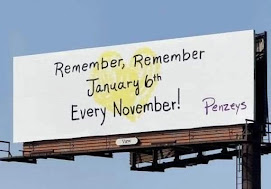Saturday, April 30, 2011
Friday, April 29, 2011
Tungurahua!!
QUITO, Ecuador — Ecuador's Tungurahua volcano hurled truck-sized pyroclastic boulders more than a mile Friday in a powerful eruption that prompted at least 300 people to flee their homes, authorities said.
Schools were closed for a third straight day as ash showered down on a dozen towns in the sparsely populated area surrounding the 16,480-foot (5,023-meter) volcano.
Thundering explosions could be heard miles from Tungurahua, which is on the Andes cordillera 84 miles (135 kilometers) southeast of Ecuador's capital, Quito.
A state Geophysics Institute scientist monitoring the volcano from a nearby observation post said by phone that incandescent boulders were landing up to 1.2 miles (2 kilometers) beneath crater level.
"The smallest blocks are that size of an automobile while the biggest reach the size of a truck, which cause impact craters up to 10 meters (33 feet) wide as they hit the flanks," the scientist, Silvana Hidalgo, told The Associated Press.
She called the eruption level "moderate to high."
Civil defense officials reported an intense shower of ash east of the volcano, including in Banos, a tourist destination three miles (five kilometers) away that is popular for its hot springs.
The volcano has been active since 1999. At least four people were killed and thousands evacuated in eruptions in July and August of 2006.
Original.
Pray for rain!
Meat glue?!
Industry-Wide Use of Meat Glue Sticks Together Scraps of Meat To Sell You Prime Cuts
It creates a type of franken-meat in that it allows butchers to use the undetectable glue to piece together scraps of meat into a seamless full meat cut. England banned use of Thrombin coagulant last year. They found it mislead consumers to think they are getting a prime cut for their money, and also the original glue was made from cow and pig blood, something they didn’t think was wise in restaurant meats.
When multiple pieces are globbed together, bacteria has a better chance of growth. “If there is a bacteria outbreak, it’s much harder to figure out the source when chunks of meat from multiple cows were combined,” said Keith Warriner who teaches food science at University of Guelph.
The EU recently brought back the use of the new glue, Thrombian, or Transglutaminase, right along with Australia, Canada and the US. The FDA, of course, deems it GRAS (generally recognized as safe). The meat preparers in the video below need to wear masks when using it because, “It’s dangerous s—.”
It’s hush-hush because meat preparers are afraid to lose their suppliers and customers. The next time you buy natural and organic meat, it wouldn’t hurt to ask about its use.
~Health Freedoms
Wednesday, April 27, 2011
The End Is Near
Tuesday, April 26, 2011
Contrary Farmer

~
Monday, April 25, 2011
Wednesday, April 20, 2011
Adult Truths
1. I think part of a best friend's job should be to immediately clear your computer history if you die.
2. Nothing sucks more than that moment during an argument when you realize you're wrong.
3. I totally take back all those times I didn't want to nap when I was younger.
4. There is great need for a sarcasm font.
5. How the hell are you supposed to fold a fitted sheet?
6. Was learning cursive really necessary?
7. Map Quest really needs to start their directions on # 5. I'm pretty sure I know how to get out of my neighborhood.
8. Obituaries would be a lot more interesting if they told you how the person died.
9. I can't remember the last time I wasn't at least kind of tired.
10. Bad decisions make good stories.
11. You never know when it will strike, but there comes a moment at work when you know that you just aren't going to do anything productive for the rest of the day.
12. Can we all just agree to ignore whatever comes after Blue Ray? I don't want to have to restart my collection...again.
13. I'm always slightly terrified when I exit out of Word and it asks me if I want to save any changes to my ten-page technical report that I swear I did not make any changes to.
14. I keep some people's phone numbers in my phone just so I know not to answer when they call.
15. I think the freezer deserves a light as well.
16. I disagree with Kay Jewelers. I would bet on any given Friday or Saturday night more kisses begin with Miller Lite than Kay.
17. I have a hard time deciphering the fine line between boredom and hunger.
18. How many times is it appropriate to say "What?" before you just nod and smile because you still didn't hear or understand a word they said?
19. I love the sense of camaraderie when an entire line of cars team up to prevent a jerk from cutting in at the front. Stay strong, brothers and sisters!
20. Shirts get dirty. Underwear gets dirty. Pants? Pants never get dirty, and you can wear them forever.
21. Sometimes I'll look down at my watch 3 consecutive times and still not know what time it is.
22. Even under ideal conditions people have trouble locating their car keys in a pocket, finding their cell phone, and Pinning the Tail on the Donkey - but I'd bet everyone can find and push the snooze button from 3 feet away, in about 1.7 seconds, eyes closed, first time, every time.
23. The first testicular guard, the "Cup," was used in Hockey in 1874 and the first helmet was used in 1974. That means it only took 100 years for men to realize that their brain is also important.
Ladies.....Quit Laughing.
Monday, April 18, 2011
Super Wi-Fi
Houston leads way in launching 'super Wi-Fi'
1st hot spot in U.S. opens Web to disadvantaged
Leticia Aguirre seems an unlikely candidate for the vanguard of wireless Internet technology.
But that's just where the Houston grandmother finds herself today, as quite possibly the nation's first user of "super WiFi" technology at her east Houston home.
Space on spectrum
A benefit to rural areas
Bag It
The film takes a look at the environmental and health dangers posed by the global use of disposable, non-biodegradable plastic products, including the infamous plastic bag. Told with wit and humor, Bag It follows “everyman” Jeb Berrier as he embarks on a global tour to unravel the complexities of our plastic world.
As a society, we have a throwaway mentality, culture of convenience, and addiction to the over-consumption of unnecessary, disposable products and packaging – things that we use one time and then, without another thought, throw away.
But where is AWAY?? Away is over flowing landfills, clogged rivers, islands of trash in our oceans, and even our very own toxic bodies.
When Jeb discovers that he and his partner are expecting a child, his plastic odyssey becomes a truly personal one. How can they protect their baby from the health dangers associated with plastics?
Jeb looks beyond single-use disposable plastics and discovers that virtually everything in modern society – from baby bottles, to sports equipment, to dental sealants, to personal care products – is either made with plastic or contains potentially harmful chemical additives used in the plastic-making process.
A 56-minute version of Bag It will air nationally on public television stations starting April 17, 2011, just in time for Earth Day. Viewers should check their local PBS stations for showtimes. Broadcast dates and times will also be posted on the screenings calendar of the Bag It website.
On Comcast in Houston - KUHT-TV:
Sunday, April 24 @ 11:00am
Wednesday, April 27 @ 8:00am.
Read more: http://www.care2.com/greenliving/plastic-bag-documentary-premiers-on-pbs-during-earth-week.html#ixzz1INfy1ZEr
Sunday, April 17, 2011
April Gardening
Friday, April 15, 2011
1%
OUR MISSION
Thursday, April 14, 2011
Future farm
 DEN BOSCH, Netherlands – Farming is moving indoors, where the sun never shines, where rainfall is irrelevant and where the climate is always right.
DEN BOSCH, Netherlands – Farming is moving indoors, where the sun never shines, where rainfall is irrelevant and where the climate is always right. Advocates say this, or something like it, may be an answer to the world's food problems. "In order to keep a planet that's worth living on, we have to change our methods," says Gertjan Meeuws, of PlantLab, a private research company.
Advocates say this, or something like it, may be an answer to the world's food problems. "In order to keep a planet that's worth living on, we have to change our methods," says Gertjan Meeuws, of PlantLab, a private research company. Despommier argues that city farming means producing food near the consumer, eliminating the need to transport it long distances at great costs of fuel and spoilage and with little dependency on the immediate climate.
Despommier argues that city farming means producing food near the consumer, eliminating the need to transport it long distances at great costs of fuel and spoilage and with little dependency on the immediate climate. Wednesday, April 13, 2011
Obama budget speech
This isn't opinion; it's simply a recitation of recent history. Those who consider the deficit and debt a mess, and want to know who "spilled the milk," shouldn't have any real doubts. It is, ironically, the party that created the mess that's whining the most about the speed with which it's being cleaned up. Original."As a result of ... bipartisan efforts, America's finances were in great shape by the year 2000. We went from deficit to surplus. America was actually on track to becoming completely debt-free, and we were prepared for the retirement of the Baby Boomers.
"But after Democrats and Republicans committed to fiscal discipline during the 1990s, we lost our way in the decade that followed. We increased spending dramatically for two wars and an expensive prescription drug program -- but we didn't pay for any of this new spending. Instead, we made the problem worse with trillions of dollars in unpaid-for tax cuts -- tax cuts that went to every millionaire and billionaire in the country; tax cuts that will force us to borrow an average of $500 billion every year over the next decade.
"To give you an idea of how much damage this caused to our national checkbook, consider this: in the last decade, if we had simply found a way to pay for the tax cuts and the prescription drug benefit, our deficit would currently be at low historical levels in the coming years.
"But that's not what happened. And so, by the time I took office, we once again found ourselves deeply in debt and unprepared for a Baby Boom retirement that is now starting to take place. When I took office, our projected deficit was more than $1 trillion. On top of that, we faced a terrible financial crisis and a recession that, like most recessions, led us to temporarily borrow even more. In this case, we took a series of emergency steps that saved millions of jobs, kept credit flowing, and provided working families extra money in their pockets. It was absolutely the right thing to do, but these steps were expensive, and added to our deficits in the short term. "So that's how our fiscal challenge was created. That's how we got here."
Tuesday, April 12, 2011
Monday, April 11, 2011
Krugman - Missing
And to think, we're going to be stuck with this farce of a Democrat in 2012. Oh joy! Another 6 years of giving away anything and everything to Republicans. Are there no real Democrats left at all? Democrats were thoroughly hoodwinked by Obama in 2008.
The President Is Missing
by Paul Krugman
What have they done with President Obama? What happened to the inspirational figure his supporters thought they elected? Who is this bland, timid guy who doesn’t seem to stand for anything in particular?
I realize that with hostile Republicans controlling the House, there’s not much Mr. Obama can get done in the way of concrete policy. Arguably, all he has left is the bully pulpit. But he isn’t even using that — or, rather, he’s using it to reinforce his enemies’ narrative.
His remarks after last week’s budget deal were a case in point.
Maybe that terrible deal, in which Republicans ended up getting more than their opening bid, was the best he could achieve — although it looks from here as if the president’s idea of how to bargain is to start by negotiating with himself, making pre-emptive concessions, then pursue a second round of negotiation with the G.O.P., leading to further concessions.
And bear in mind that this was just the first of several chances for Republicans to hold the budget hostage and threaten a government shutdown; by caving in so completely on the first round, Mr. Obama set a baseline for even bigger concessions over the next few months.
But let’s give the president the benefit of the doubt, and suppose that $38 billion in spending cuts — and a much larger cut relative to his own budget proposals — was the best deal available. Even so, did Mr. Obama have to celebrate his defeat? Did he have to praise Congress for enacting “the largest annual spending cut in our history,” as if shortsighted budget cuts in the face of high unemployment — cuts that will slow growth and increase unemployment — are actually a good idea?
Among other things, the latest budget deal more than wipes out any positive economic effects of the big prize Mr. Obama supposedly won from last December’s deal, a temporary extension of his 2009 tax cuts for working Americans. And the price of that deal, let’s remember, was a two-year extension of the Bush tax cuts, at an immediate cost of $363 billion, and a potential cost that’s much larger — because it’s now looking increasingly likely that those irresponsible tax cuts will be made permanent.
More broadly, Mr. Obama is conspicuously failing to mount any kind of challenge to the philosophy now dominating Washington discussion — a philosophy that says the poor must accept big cuts in Medicaid and food stamps; the middle class must accept big cuts in Medicare (actually a dismantling of the whole program); and corporations and the rich must accept big cuts in the taxes they have to pay. Shared sacrifice!
I’m not exaggerating. The House budget proposal that was unveiled last week — and was praised as “bold” and “serious” by all of Washington’s Very Serious People — includes savage cuts in Medicaid and other programs that help the neediest, which would among other things deprive 34 million Americans of health insurance. It includes a plan to privatize and defund Medicare that would leave many if not most seniors unable to afford health care. And it includes a plan to sharply cut taxes on corporations and to bring the tax rate on high earners down to its lowest level since 1931.
The nonpartisan Tax Policy Center puts the revenue loss from these tax cuts at $2.9 trillion over the next decade. House Republicans claim that the tax cuts can be made “revenue neutral” by “broadening the tax base” — that is, by closing loopholes and ending exemptions. But you’d need to close a lot of loopholes to close a $3 trillion gap; for example, even completely eliminating one of the biggest exemptions, the mortgage interest deduction, wouldn’t come close. And G.O.P. leaders have not, of course, called for anything that drastic. I haven’t seen them name any significant exemptions they would end.
You might have expected the president’s team not just to reject this proposal, but to see it as a big fat political target. But while the G.O.P. proposal has drawn fire from a number of Democrats — including a harsh condemnation from Senator Max Baucus, a centrist who has often worked with Republicans — the White House response was a statement from the press secretary expressing mild disapproval.
What’s going on here? Despite the ferocious opposition he has faced since the day he took office, Mr. Obama is clearly still clinging to his vision of himself as a figure who can transcend America’s partisan differences. And his political strategists seem to believe that he can win re-election by positioning himself as being conciliatory and reasonable, by always being willing to compromise.
But if you ask me, I’d say that the nation wants — and more important, the nation needs — a president who believes in something, and is willing to take a stand. And that’s not what we’re seeing.
Original.
Friday, April 8, 2011
No more cumadin!
Thursday, April 7, 2011
GEeee
I think we need to trash this whole "free trade" bullshit. It has done little but move technology and jobs overseas. U.S. companies should be PUNISHED and not REWARDED for moving jobs overseas. They should be REWARDED for keeping jobs here.
This story tends to offset (a little) those recent stories about the mega-billions that GE has made over the last few years while not paying ONE CENT in taxes, and THEN demanding concessions from the unions!
GE To Build Largest Solar Panel Factory In U.S.
NEW YORK -- General Electric says it's going to build the nation's largest solar panel factory, part of a $600 million dollar bet on the future of solar power in the United States.
The new plant will employ 400 people and produce enough solar panels to power 80,000 homes per year, GE said Thursday. The company isn't saying where the plant will be located, but it does say that there are multiple locations being scouted.
GE says its thin film solar panel has been certified as the most energy efficient of its kind by the National Renewable Energy Lab in Colorado. The technology for the panel, called CdTe thin film, lends itself to low-cost, large-scale manufacturing.
GE recently acquired PrimeStar Solar Inc. a maker of thin film solar panels based in Colorado.
Original.
Wednesday, April 6, 2011
Saturday, April 2, 2011
April Stargazing
With the constellations of winter on their way out, the stars of spring dominate the sky for most of the night. Leo, the season's signature constellation, stands high in the south by the time the last glow of twilight fades away. Look for the backward question mark that outlines his head and mane, and the small triangle to its left that marks his tail. Virgo follows Leo across the sky. And Boötes, the herdsman, rises in the northeast, marked by yellow-orange Arcturus, one of the brightest stars in the night sky.
More stargazing information: http://stardate.org/nightsky
Radio Program Highlights
Hear StarDate every day on more than 360 radio stations nationwide or subscribe to our podcast: http://stardate.org/feeds/podcast.xml
April 4-10: Charging past the bull. The Moon charges past the shoulder, the face, and the horns of Taurus, the bull, this week, and we'll have details. We'll also have details on a "great" observatory, plus a lot more on the night sky.
April 11-17: Follow the water. Missions to Mars have found that there's water all across the Red Planet -- a resource for future exploration -- and for possible life. Join us for Martian water, plus a possible explosive birth for a Martian moon.
April 18-24: A basketful of planets. A single spacecraft has tripled the number of possible known planets -- it found as many as 1200 of them. We'll have details, plus the profile of a single star system with at least six planets.
April 24-30: Traffic jam. There's a planetary traffic jam in the dawn sky this week. Only one of the planets is easy to see, but the others are climbing into better view. And the Moon rounds out the crowd. Join us for this and much more.
April Program Schedule: http://stardate.org/radio/calendars
Find an Affiliate: http://stardate.org/radio/affiliates
Open House in Fort Davis
Come enjoy an Open House at McDonald Observatory on Saturday, April 9. The day of free, family-friendly events runs from 2 p.m. to 10 p.m., and includes tours of large research telescopes, science talks, a star party and other telescope viewings. We'll also have hotdogs, face painting, and balloons.
For more information and to make your reservations for the free events, which are likely to fill up, see: http://mcdonaldobservatory.org/openhouse
Getting a Facelift for Science
The Hobby-Eberly Telescope is about to get a facelift. This summer, engineers will lop off the package of mirrors, instruments, and electronics sitting 60 feet above its primary mirror and replace it with one that is heavier and more sophisticated. The replacement will give the giant telescope a wider yet sharper view of the sky and support a new set of powerful instruments that will allow it to begin probing the mystery of dark energy.
Read More: http://hetdex.org/updates/facelift.php
News From the Observatory
Texas Astronomers Find Super-luminous Supernova
Astronomers led by graduate student Emmanouil "Manos" Chatzopoulos and Dr. J. Craig Wheeler of The University of Texas at Austin have found another extremely bright, rare supernova to add to the new class of exploding stars that University of Texas astronomers identified a few years ago. Supernova 2008am is one of the most intrinsically bright exploding stars ever observed. At its peak luminosity, it was over 100 billion times brighter than the Sun. It emitted enough energy in one second to satisfy the power needs of the United States for one million times longer than the universe has existed.
Read more: http://mcdonaldobservatory.org/news/releases/2011/0328.html
Astronomy Night at the Museum
An evening of free, family-friendly astronomy events will be held on April 11 at Austin's Bob Bullock Texas State History Museum. From 7-8 p.m., the Austin Planetarium will conduct shows in its mobile planetarium. At 8 p.m., University of Texas at Austin astronomy professor Jenny Greene will speak on "Black Holes: Tiny but Powerful" in the Spirit Theater. Additionally, astronomers will be on hand from 7 to 9 p.m. to answer questions at an "Ask the Astronomer" booth. These events are held in conjunction with the American Astronomical Society's Division of Dynamical Astronomy Meeting being held in Austin April 11-14.
More information: http://www.thestoryoftexas.com/education/adults.html#astronomy_night
He's always watching












































